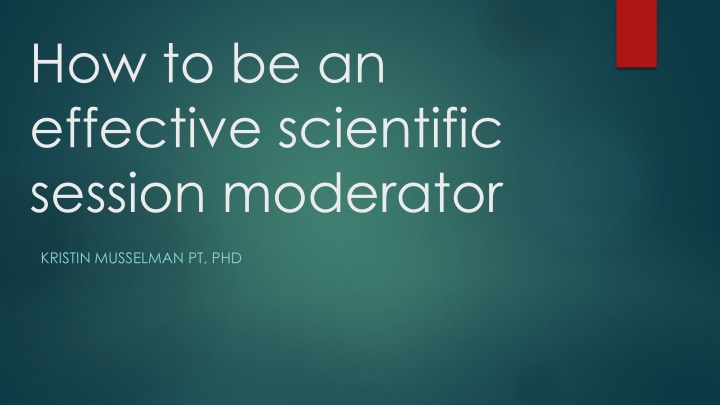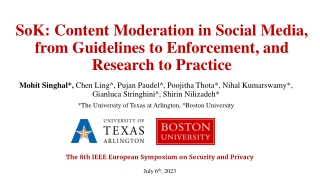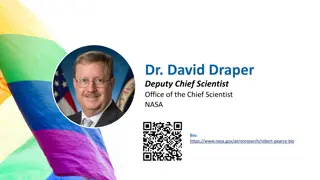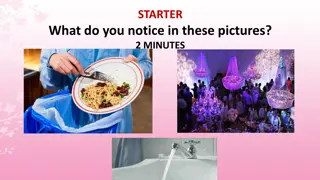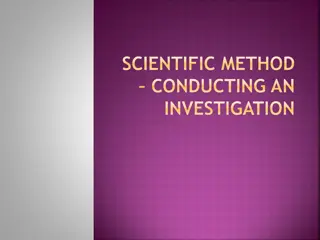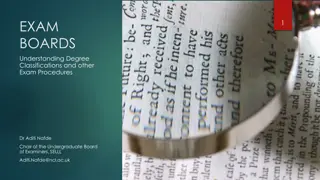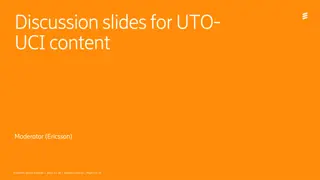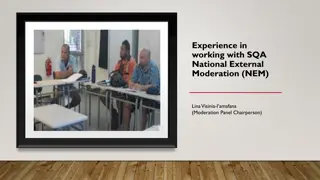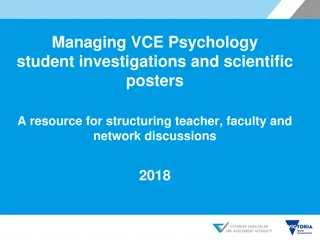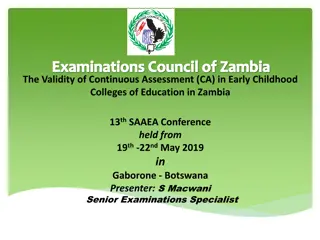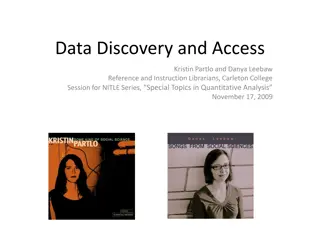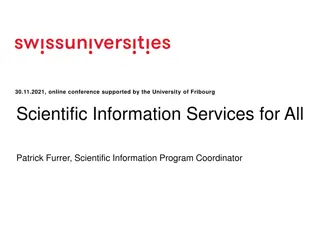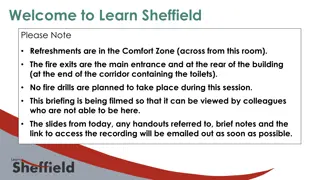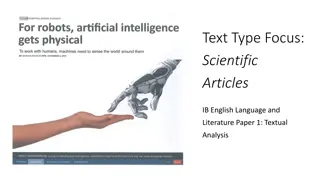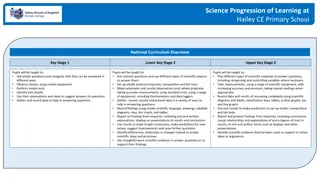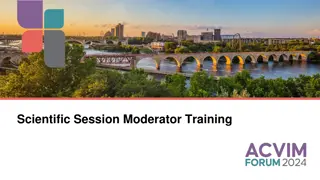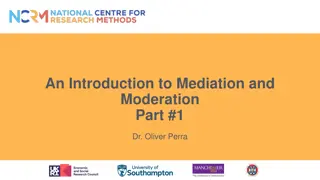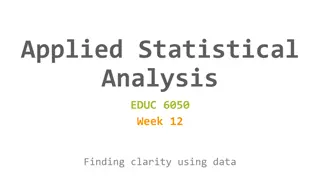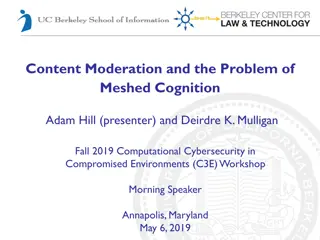Effective Scientific Session Moderation with Dr. Kristin Musselman: Tips and Strategies
Enhance your skills as a scientific session moderator with valuable insights from Dr. Kristin Musselman, a renowned PT and PhD. Learn about the key responsibilities of a moderator, tips for effective moderation, and the importance of preparation, time management, and audience engagement. Explore resources and practical advice to excel in moderating scientific sessions successfully.
Download Presentation

Please find below an Image/Link to download the presentation.
The content on the website is provided AS IS for your information and personal use only. It may not be sold, licensed, or shared on other websites without obtaining consent from the author.If you encounter any issues during the download, it is possible that the publisher has removed the file from their server.
You are allowed to download the files provided on this website for personal or commercial use, subject to the condition that they are used lawfully. All files are the property of their respective owners.
The content on the website is provided AS IS for your information and personal use only. It may not be sold, licensed, or shared on other websites without obtaining consent from the author.
E N D
Presentation Transcript
How to be an effective scientific session moderator KRISTIN MUSSELMAN PT, PHD
Resources 1. How to chair a scientific conference session (and not look like a fool!) EUSPR Early Careers Forum. https://euspr.hypotheses.org/675 2. Chairing Sessions. Scitable by Nature Communications. https://www.nature.com/scitable/topicpage/chairing- sessions-13908566/
Theres a big difference between showing up and being awesome. https://www.toprankblog.com/2010/11/moderators-speakers-conferences/
What does a moderator do? Pre-work review materials at least 1 day in advance Arrive early to ensure room is ready & greet speakers Open the session welcome audience & speaker(s), introduce yourself, make announcements, introduce speaker(s) Manage time to ensure session stays on schedule Moderate Q&A Close session thank audience & speaker(s) **Trouble shoot any challenges
Moderating Tips 1. Come Prepared! 2. Manage Time Well 3. Consider the Speaker 4. Consider the Audience 5. Expect the Unexpected
1. Come Prepared! The day before the session: Do you know how to pronounce speakers names? Could affect how others address speaker Moloughney mo-lock-ney atan suh-tan
1. Come Prepared! The day before the session: Review submitted bio does it need to be shortened? Dr. Kristin Musselman is a physical therapist, a Scientist with the Neural Engineering and Therapeutics Team at the Toronto Rehabilitation Institute Lyndhurst Centre, and an Assistant Professor in the Department of Physical Therapy at the University of Toronto. She completed a BSc (Life Sciences) and BScPT at Queen s University, followed by a MSc (Neurosciences) and PhD (Rehabilitation Science) at the University of Alberta. Dr. Musselman was a CIHR Post-doctoral Fellow at the Johns Hopkins School of Medicine and Kennedy Krieger Institute from 2010-2013. She is active in the Canadian Physiotherapy Association, serving on the Executive of the Neurosciences Division. She is also co-lead of the Walking Measures Group for the Rick Hansen Spinal Cord Injury Registry. Dr. Musselman s research aims to optimize the rehabilitation and measurement of walking and upper limb movements following damage to the nervous system in children and adults. She and her colleagues have developed novel assessment and training tools for individuals with spinal cord injury and pediatric populations. Her current research is funded by the Canadian Institutes of Health Research, Craig H. Neilsen Foundation, Heart and Stroke Foundation of Canada, Ontario Neurotrauma Foundation, Rick Hansen Institute, Saskatchewan Health Research Foundation, and the Canada Foundation for Innovation.
1. Come Prepared! The day before the session: Review submitted bio does it need to be shortened? Dr. Kristin Musselman is a physical therapist Scientist with the Neural Engineering and Therapeutics Team at the Toronto Rehabilitation Institute Lyndhurst Centre, and Assistant Professor in the Department of Physical Therapy at the University of Toronto. She completed a BSc (Life Sciences) and BScPT at Queen s University, followed by a MSc (Neurosciences) and PhD (Rehabilitation Science) at the University of Alberta. Dr. Musselman was a CIHR Post-doctoral Fellow at the Johns Hopkins School of Medicine and Kennedy Krieger Institute from 2010-2013. She is active in the Canadian Physiotherapy Association, serving on the Executive of the Neurosciences Division. She is also co-lead of the Walking Measures Group for the Rick Hansen Spinal Cord Injury Registry. Dr. Musselman s research aims to optimize the rehabilitation and measurement of walking and upper limb movements following damage to the nervous system in children and adults. She and her colleagues have developed novel assessment and training tools for individuals with spinal cord injury and pediatric populations. Her current research is funded by the Canadian Institutes of Health Research, Craig H. Neilsen Foundation, Heart and Stroke Foundation of Canada, Ontario Neurotrauma Foundation, Rick Hansen Institute, Saskatchewan Health Research Foundation, and the Canada Foundation for Innovation.
1. Come Prepared! The day before the session: Review abstract(s) brainstorm possible questions Abstract: Individuals living with chronic spinal cord injury (SCI) often face challenges accessing timely and effective health servicesand the economic burden associated with SCI has led to exploration of non-traditional avenues to meet the complex health needs of individuals with SCI. This trend inspired the creation of the Virtual Integration Platform for SCI (VIP4SCI), a web-based tool, developed in partnership with, Spinal Cord Injury Ontario (SCIO), ForaHealthyMe Inc. (FAHM), and the Mobility Clinic. This presentation will highlight the findings and lessons learned from the design, deployment, and evaluation of the VIP4SCI platform. Considerable attention will be given to the usability and satisfaction of the platform among VIP4SCI clients and SCIO staff users plus its potential for economic / organizational impact.
1. Come Prepared! The day before the session: If you are moderating several short talks, think about what the talks have in common Highlight commonality in your introduction of the session If no connection, We have a variety of great talks in the next hour
2. Manage time well Finish on time (important to the audience) Ensure each speaker has equal time (important to the speakers) Stay Flexible! Review allotted time with speaker(s) before session begins Use stopwatch - signal 5 minutes left, 1 minute left If speaker ignores signals, it is acceptable to interrupt Prevent one audience member from monopolizing Q&A End Q&A on time
3. Consider the Speaker Arrive 10 minutes early Check slides and equipment working get technician as needed Confirm correct pronunciation of names Confirm affiliations and positions Review allotted time & time signals Ask if speaker(s) would like water Ask speaker(s) for possible questions
4. Consider the Audience Be enthusiastic, be engaging you set the tone Indicate when and where (i.e. mic?) to ask questions Provide signals (e.g. after thanking speaker, applaud yourself) Reduce noise levels by closing doors Ask hallway conversations to quiet down Adjust lighting
5. Expect the Unexpected What do you do?? Speaker does not show up
5. Expect the Unexpected What do you do?? Speaker will not stop talking
5. Expect the Unexpected What do you do?? Session is supposed to start but there are only three people in the audience
5. Expect the Unexpected What do you do?? Speaker and audience member get into a heated debate
5. Expect the Unexpected What do you do?? Projector turns off, operating system decides to run an update, or other technical problems
5. Expect the Unexpected What do you do?? Some kids are making funny faces at the windows to the conference room
Summary 1. Come Prepared! 2. Manage Time Well 3. Consider the Speaker 4. Consider the Audience 5. Expect the Unexpected If interested in moderating at the RSI Leadership Rehab Rounds, please contact me: Kristin.Musselman@uhn.ca or Monika Molnar: monika.molnar@utoronto.ca
